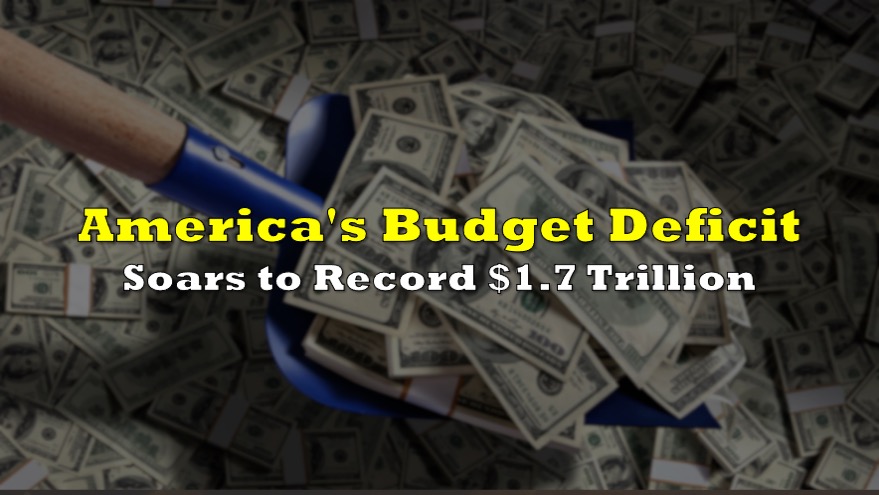Now that the third round of stimulus checks are en route to qualifying Americans, the next question that is on investors’ minds is where in the economy will all that cash eventually end up? Well, it appears that the Bank of America has devised two possible outcomes: there will either be a consumption boom or further saving— and as the data reveals, the latter is likely the most probable scenario.
Throughout the pandemic, American households have amassed a record level of savings, and so far the consensus among analysts is that the savings glut will be spent as soon as the economy fully reopens. However, according to BofA’s Jared Woodard, whether or not savings will translate to a consumption boom will largely depend on the distribution of the cash across income quintiles. In the third quarter of 2020, the top 20% of US households held approximately $10.2 trillion in liquid assets, the next 20% held $2.3 trillion, while the bottom 60% combined amassed only $2.7 trillion.

So, what about the Covid-19 emergency stimulus, how was that distributed? Well, between the end of 2019 and September 2020, liquid household assets increased by $2.2 trillion, which is what investors have been eying so closely, given that it will be a large determinant of upcoming inflation levels. Although spending over $2 trillion in the US economy at once would certainly create a significant consumption boom, the reality is likely much different.
According to the latest Household Balance Sheet data published by the Federal Reserve and then analyzed by the BofA, the top 1% of earners saw their cash level increase by $1.5 trillion since the onset of the pandemic, meanwhile cash for the remaining percentiles rose by a paltry $0.7 trillion. That means, cash assets for the top 1% alone have increased by almost as much as the bottom 80% of Americans combined.

As one study by the Federal Reserve Bank of Boston found, whether or not a given dollar will be spent or saved predominantly depends on the income percentile the individual holding it falls into. Under average circumstances, the bottom 20% of households were likely to spend $0.97 of every dollar they earned, whereas the top 20% spent only $0.48 of each dollar. Thus, to put it loosely, if the objective of the stimulus is to boost America’s economy via consumption, dispatching cash to those individuals that are the least likely to spend it is not going to be very effective.
To put the situation into clearer context, the BofA recently surveyed over 3,000 individuals to gauge how they would use their stimulus checks. According to the survey, 30% of respondents said they would pay off their debts, 25% said they would save it, and 9% revealed they would invest it. Conversely, only 36% of those surveyed said they would spend their stimulus check, meaning that a good portion of the direct stimulus aid will remain in the financial system rather than create demand for goods and services within the economy. In fact, the study found that nearly every income group has said they plan to save more than normal.

However, even if the results of the survey do come with some caveats, a significant rebound in spending among even the top earners will likely not be sufficient. That is because spending in the sectors that were disproportionately affected by the pandemic— such as leisure, restaurant, accommodation, and travel— only accounted for 4% of total GDP prior to the pandemic. So, why is all of this important? Well, because, the market may be pricing in a significant rebound in inflation within the next couple of months, when the opposite reality may come true.
So, even if Woodward is correct and spending on US goods and services overwhelmingly disappoints, where else may the hot-off-the-printing press stimulus checks end up, other than savings accounts? According to Bloomberg, Biden’s latest $1.9 trillion bill is likely setting the stage for the next wave of retail investing, which will see even more government transfer payments ending up in the stock market.
As Bloomberg similarly notes, albeit many cash-strapped households will feasibly use their stimulus funds to pay down past-due accounts, another cohort of consumers will likely invest their $1,400 payment into the stock market. So, in conclusion, Biden’s latest emergency spending has a high probability of not achieving the end goal of boosting consumption on struggling goods and services, but rather pumping the stock market even higher. Whether that be blue chips, cryptocurrencies, or the latest meme stock, America’s retail investors are back, and they are armed to the teeth with stimulus checks. Let the games begin.
Information for this briefing was found via the Bank of America, the Federal Reserve, and Bloomberg. The author has no securities or affiliations related to this organization. Not a recommendation to buy or sell. Always do additional research and consult a professional before purchasing a security. The author holds no licenses.









